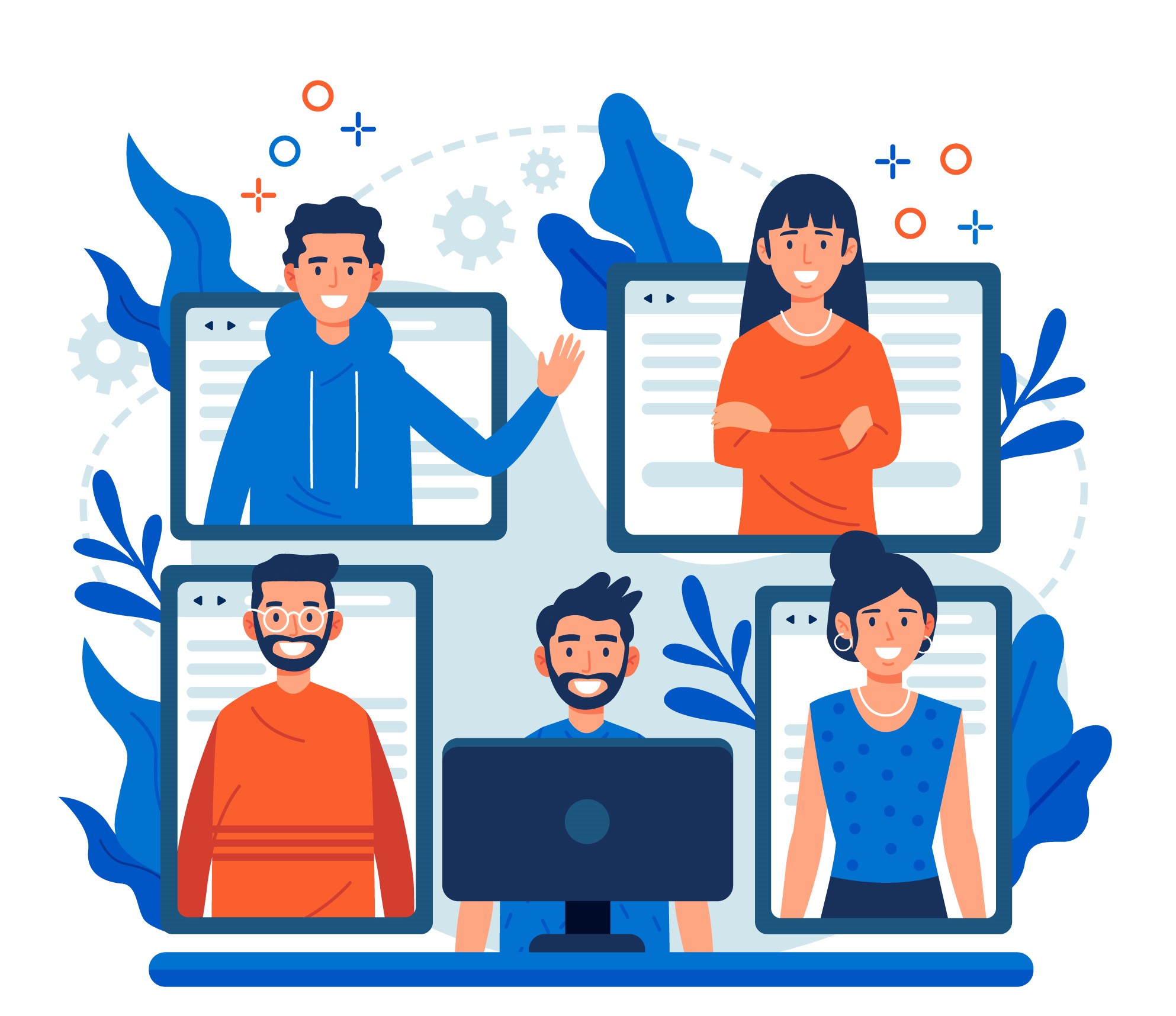Focus group discussions are an excellent way to get your target audiences to express their opinions about your company's offerings. Participants gather from similar backgrounds or experiences to discuss a particular topic during a focus group discussion, whether face-to-face or virtually. Focus groups offer topics that typically cover respondents' opinions, views, beliefs, attitudes, and perceptions of a product or service.
On the surface, focus groups appear to be a simple project to finish: gather groups of people, start a discussion related to your business and products, record the data, and use the results for future marketing campaigns or research and development.
However, you need to be highly strategic and well-prepared throughout the process to get the most out of your focus groups. Without careful planning, you might not be able to extract high-quality and valuable information, which would negate the goal of your group.
B2B International claims online focus groups have become popular for the past 15 years, enabling researchers to collect qualitative data virtually. The speed and sophistication of new technology have been significant factors in this evolution, but so has respondents' willingness—or even request—to express their opinions online rather than in person or over the phone. There are also certain negative behaviors and practices that we should prevent from jeopardizing the success of an online focus group discussion. In this blog, we have listed the five most common focus group mistakes so you can know what not to do.
The Essential Don'ts of Online Focus Group Discussions
1. Don't Ignore Technical Checks
To prepare your participants, send out instructions before the session. This includes guidelines on accessing necessary materials, logging in, and using the platform.
When conducting a focus group virtually, conducting technical checks is essential before each session. Experienced technicians may be needed to test devices, prepare participants for the discussion, and troubleshoot technical problems.
Moreover, mitigate possible technology challenges by avoiding unfamiliar or untrustworthy software for your focus group sessions. Choose any reliable and user-friendly platform with contingency plans for technical difficulties and ensure the platform has the necessary features, such as breakout spaces or live chat, that you can use for better communication.
2. Don’t Allow Interruptions: Overloaded Participants
Focus groups promote free-flowing conversations and brainstorming between participants. In most cases, each session consists of a small group of individuals, typically 8 to 10 people, undertaken in a loosely structured conversation by a moderator.
Managing excessive participants in a focus group discussion would be challenging, which might only lead to misunderstandings between the moderator and the participants. However, participants should be reminded to respect others’ opinions and given clear guidelines regarding taking turns at the beginning of the session. The importance of actively listening to others should be emphasized because it promotes respect and allows the group to engage and discuss their ideas within the group. Urge your participants to maintain their attention on the subject of the conversation.
3. Don’t Ignore Participant Engagement
Encourage conversation, ask open-ended questions, and use platform tools like chat, breakout rooms, and polls to keep the group members interested and involved.
To be an effective moderator, remaining flexible and free of biases and prejudices is essential. Highlight the group's insights and focus on the discussion's predefined objectives, for it is necessary to put aside individual points of view. Lead your participants as a moderator without feeling compelled to. When new insights arise from the conversation, be ready to stray from the plan and gently refocus it to ensure all goals are met. At the start of each session, you must first establish rapport and begin with general questions to ease respondents into the conversation.
If a participant mentions something unfamiliar, ask them to elaborate further. Then, explore whether the participants share that perspective or have similar opinions to encourage deeper discussion.
4. Don’t Skip Data Security Protocols
Protecting your respondents' personally identifiable information (PII) is crucial when dealing with delicate research topics. The most stringent international privacy laws and data security standards, including HIPAA, CCPA, and GDPR, should also be considered in online focus group discussions to guarantee user trust and legal compliance. While enabling data use, it also complies with the dataset's analytical value.
You can use a face blurring or audio masking service feature to stop the leak of their personal information in this situation. To gain your participants' trust, describe your intention to maintain confidentiality, your invitation to do so, and what will happen to the information they provide. If a report is required, describe its intended recipient and its intended use.
In addition, virtual group discussions also allow participants to work at their own pace by delivering the stimuli straight to their screen. Finding a provider who lets you use dynamic stimuli for your focus groups and online interviews will also be beneficial. Do not use unprotected platforms; ensure the platform is encrypted to safeguard private conversations. Before the session begins, the participants' consent must always be obtained to record and use the data.
5. Don’t Rush The Discussion
Focus group discussions typically last between 60 and 90 minutes. This gives ample time to address important topics, encourage insightful conversations, and keep participants interested without wearing them out. Give each question or topic enough time to cover their concerns and opinions that can help you benefit from your discussion.
Acknowledge and thank people for their contributions. Make them feel that their input is valued and worthy and understand the problems they bring up, even if you believe some people are using the focus group to vent. You can rearrange your discussion guide questions to adapt to changes in the flow of conversation.
Focus groups require a highly strategic and well-planned approach to get the most out of the process. If you don't plan well, you might not get high-quality or valuable information, which would negate the goal of your group.
Main Points
Focus group discussions give researchers a better understanding of their target audience, give participants a forum to exchange ideas interactively, and assist in making defensible decisions based on qualitative data. As they are designed and both directed and expressive, focus group discussions are thus an excellent method of collecting detailed information regarding a community's views and opinions regarding a subject. You can lead a focus group discussion that is more equitable, civil, and restrained by putting the strategies listed above into practice, especially when conducting the discussion online.
Make the Most Out of Your Online Focus Group Discussion with Civicom CyberFacility®
Conduct IDIs and focus groups efficiently and utilize multiple tools that will help guide your market research to success. We make sure that your sessions go smoothly without a hitch. Gather more detailed insights, include multiple stimuli, and conduct your sessions worldwide with a secure online qualitative solution like Civicom CyberFacility®.



